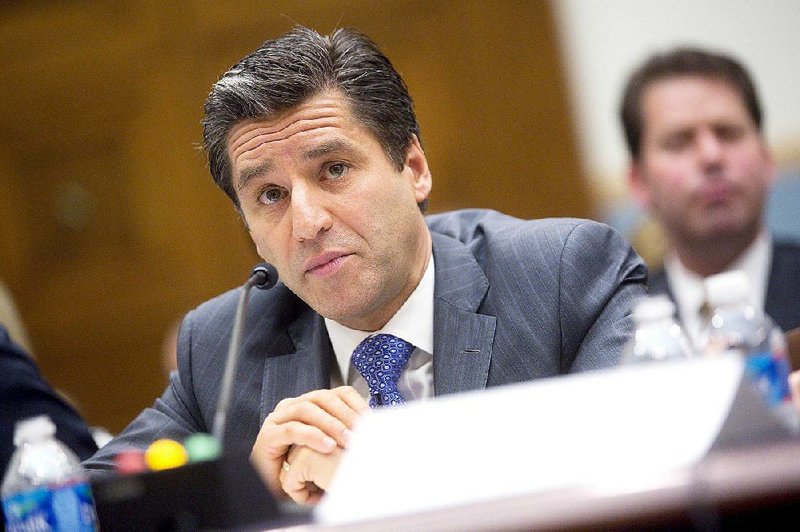Comcast confirmed Friday that it had called off its $45 billion takeover of Time Warner Cable, aborting its plans to create a national cable company with unprecedented control over the future of the country's television and broadband markets.
The deal would have joined the country's two largest cable operators at a time when the Internet is changing how people watch and pay for television.
Combined, the companies would have controlled as much as 57 percent of the nation's broadband market and just under 30 percent of pay-television service. That threshold appeared to be too much for federal regulators, who had signaled that they were leaning toward blocking the deal.
"Today, we move on," Brian Roberts, Comcast's chief executive, said in a statement. "Of course, we would have liked to bring our great products to new cities, but we structured this deal so that if the government didn't agree, we could walk away."
He said Comcast was "a unique company with strong momentum" and it had delivered solid operating results during the period that it was trying for the takeover. "I couldn't be more proud of this company and I am truly excited for what's next," he said.
Robert Marcus, chief executive of Time Warner Cable, said in a statement the company has been "laser-focused" throughout the deal process on improving the company's operations and was confident it would deliver value to shareholders.
"We have always believed that Time Warner Cable is a one-of-a-kind asset," he said. "We are strong and getting stronger."
The Justice Department confirmed that it had significant concerns that the proposed merger "would make Comcast an unavoidable gatekeeper for Internet-based services that rely on a broadband connection to reach consumers."
"This is a victory not only for the Department of Justice," Attorney General Eric Holder said in a statement, "but also for providers of content and streaming services who work to bring innovative products to consumers across America and around the world."
Tom Wheeler, chairman of the Federal Communications Commission, said Friday that the decision to abandon the deal was in the best interest of consumers.
"Today, an online video market is emerging that offers new business models and greater consumer choice," he said in a statement. "The proposed merger would have posed an unacceptable risk to competition and innovation, including to the ability of online video providers to reach and serve consumers."
Time Warner Cable is scheduled to announce earnings next week, when analysts expect the company to reveal more details about its plans.
Comcast and Time Warner Cable did not include a breakup fee in the deal.
Announced with much fanfare in February 2014, the transaction faced intense scrutiny by government regulators, who feared that the deal harmed competition and was not in the public interest. It also drew criticism from lawmakers, consumers, public advocacy groups, and media and technology companies.
Roberts of Comcast had pitched the deal as an attempt to create a "world-class blue-chip company committed to innovation" that would lead to cutting-edge video services and faster Internet speeds.
But concerns grew that the transaction would place too much power over the future of the country's entertainment and communications infrastructure in the hands of one company. Comcast also owns the entertainment group NBCUniversal, which it acquired in 2011.
With a national platform, Comcast would have been able to build a stronger rival to streaming services such as Netflix that threaten the traditional television business. It also could have thwarted television networks' attempts at creating their own streaming services by forcing them to hold back programming. At the same time, the company would have wielded more power over the broadband networks that those services need.
Critics said customers would end up paying more for declining service and that the company would stave off competition and innovation in the online video business. Others said the deal would result in a lack of independent and diverse voices in television. The company also was scrutinized for failing to live up to commitments it had made in previous deals, such as the NBCUniversal transaction.
"It shows that even big cable has to listen to the American people who spoke loudly and clearly on this and who understood how important this was to keep the communications infrastructure free and open and protect it from gatekeeping," said Michael Copps, a former Democratic member of the FCC and an adviser to the Common Cause public interest group.
Comcast officials this week met with officials from the FCC and the Justice Department, who signaled that they were leaning against the merger.
The collapse of the deal effectively put an end to a series of other transactions that would have reshaped the media industry. Charter Communications, the regional cable operator, will no longer acquire some of the Time Warner Cable markets that Comcast was planning to divest. Charter's $10.4 billion deal for Bright House Networks also was contingent on Comcast's purchase of Time Warner Cable.
Business on 04/25/2015
